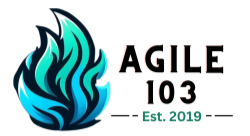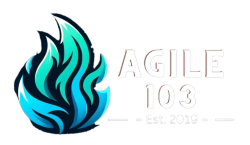Facilitated by Tox. B.
In the fast-paced world of software development, speed, reliability, and efficiency are critical. Continuous Integration and Continuous Deployment (CI/CD) has become a foundational practice for Agile teams aiming to release quality software frequently and automatically.
Our upcoming session, Building and Automating CI/CD Pipelines with Jenkins, GitLab CI, and GitHub Actions, scheduled for April 2025, is designed to help participants understand, build, and optimize modern CI/CD pipelines using industry-leading tools.
Why CI/CD Matters in Agile Development
CI/CD helps bridge the gap between development and operations, enabling teams to:
- Detect issues earlier in the development cycle
- Automate repetitive testing and deployment tasks
- Increase release frequency without compromising quality
- Reduce integration risks and improve time-to-market
CI/CD is essential to Agile because it supports continuous feedback loops and incremental delivery—core principles of the Agile Manifesto.
Overview of the Tools
1. Jenkins
Jenkins is a widely adopted open-source automation server that supports building, testing, and deploying code.
. Flexible with thousands of plugins
. Extensible for complex pipelines
. Supports Docker, Kubernetes, and many cloud platforms
2. GitLab CI
GitLab CI/CD offers a native CI/CD experience tightly integrated into GitLab:
. YAML-based configuration
. Built-in Docker and Kubernetes integration
. Scalable for monorepos and microservices
3. GitHub Actions
GitHub Actions provides automation directly in your GitHub repositories:
. Built-in CI/CD without leaving GitHub
. Marketplace for pre-built workflows
. Ideal for small to medium projects
What You’ll Learn in This Session
This hands-on session will guide attendees through:
- The fundamentals of CI/CD in Agile delivery
- How to configure and run CI/CD pipelines in Jenkins, GitLab, and GitHub
- Building reusable and secure pipeline workflows
- Tips for troubleshooting and pipeline performance
Key Topics and Exercises
- Pipeline as Code: Learn to write pipeline configurations using Jenkinsfile and GitHub workflows.
- Automated Testing: Integrate testing stages (unit, integration, and static code analysis) into your pipeline.
- Deployment Automation: Deploy applications to staging or production environments using Docker, Kubernetes, or cloud services.
- Security Best Practices: Implement secrets management and secure access for pipeline operations.
Learn more about DevSecOps best practices at OWASP.
How to Prepare for the Session
- Install or register for Jenkins, GitLab, and GitHub accounts.
- Have a sample project ready (can be simple JavaScript, Python, or Java).
- Familiarize yourself with YAML and Git basics.
- Explore real-world DevOps implementations on REDHAT.
Benefits of Participating
- Build robust pipelines to support Agile software delivery.
- Reduce manual deployment efforts and increase team productivity.
- Gain practical experience using CI/CD tools widely adopted across industries.
- Prepare for DevOps-related certification or job interviews.
Ready to automate your Agile delivery pipeline? Don’t miss Building and Automating CI/CD Pipelines with Jenkins, GitLab CI, and GitHub Actions this April 2025. Learn how to transform your workflow and deploy confidently—every time.


